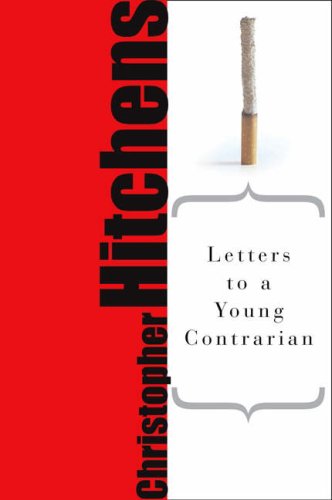In The Critic, Roland Elliott Brown considers the work of Christopher Hitchens, and particularly his Letters to a Young Contrarian from 2001:
The book is now nearly twenty years old. Hitchens wrote it in late 2000 and early 2001 for Perseus Books’ Rilke-inspired “Art of Mentoring” series, and it was published a month or so after 9/11. In view of this timeline, it occupies an eerily-placid DMZ between the “acceptable” 1990s Hitchens, whose only big sin against the political left had been to hound the centrist Bill Clinton, and the ostensibly-more isolated one post-2001, who took heart at the prospect of America using its military might against jihadis and Baathists. The book was largely a post-mortem on the intellectual battles of the twentieth century, and a lesson in writerly integrity. Today, it reads as a riposte to the new “populism” and the “awokening”.
Since Hitchens’s death from oesophageal cancer in 2011, his presence has been missed on major subjects. In a counterfactual world, it seems likely that Syria, ISIS, and the Iran nuclear negotiations (all entangled) would have occupied him in the first half of the 2010s, and that the potential unravelling of the American republic would have worried him in the second. Part of what his admirers miss, too […] is his performative flair. Though new media weren’t his passion, he owes much of his legacy to his YouTube archive, wherein his long-form lectures, debates, and C-span interviews seem, in hindsight, to have provided a model for the popularity of long-form podcasts.
The Letters can be read as a guide to giving an authentic performance as a political actor. Hitchens begins by selling an imagined student his lifestyle; in one good month, he writes (with some perhaps-inauthentic modesty), he has given evidence against Mother Teresa at the Vatican, taken pride in his arguments over Bosnia as Slobodan Milosevic went to the Hague, and had the thrill of being sued by Henry Kissinger. What the world needs now, the book implies, is for the young to find their appetite for the takedown. (One wonders to what extent his search for successors may have emerged from early intimations of mortality: in one C-span interview about the book, he also urged the youth not to take up smoking.)
[…]
But to reiterate, Letters to a Young Contrarian was fundamentally a twentieth-century work by a man who thought of himself as a sixties radical. Other sixties people like Noam Chomsky and Gore Vidal, with whom Hitchens would later fall out over the War on Terror, figure here in heroic roles. Radicals, he argues in the third chapter, are needed to force major issues. Would slavery have ended in America, he asks, if not for the fanaticism of John Brown? Many of his mentors — Peter Sedgwick, E.P. Thompson — were sometime British communists (and long-time socialists) who had ditched the Party after the Soviet invasion of Hungary (what a pity, then, that he never got to debate “the left” with Jordan Peterson).
Of course, Hitchens was not the only sixties radical to court influence in the 2000s, nor was he the most influential. Much of the radicalism he valued now comes to us — via less subtle mentors — in parody form: as sixties-worship gone sour, as a morbid focus on immutable characteristics, as a desire to short-circuit debate, as the unclean spirit that possesses young journalists to misrepresent their subjects so that they can gloat about the takedown. East of the old Iron Curtain, Alexander Lukashenko borrows a page from the dissidents of ’89 by carrying on “as if” there had been no pandemic, “as if” he had won a presidential election, and “as if” NATO was getting ready to invade Belarus. In such times, it seems worth living “as if” the cigarette-smoking ghost still had an eye on the scene.




